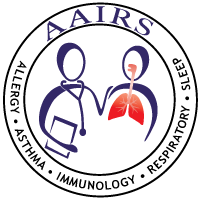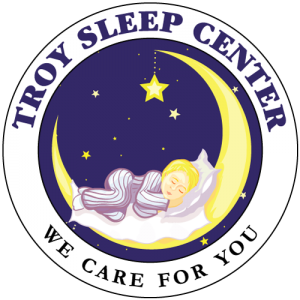Definition
Pneumonia is a breathing (respiratory) condition in which there is an infection of the lung.
This article covers community-acquired pneumonia (CAP). This type of pneumonia is found in persons who have not recently been in the hospital or another health care facility such as a nursing home or rehab facility. Pneumonia that affects persons in health care facilities is called hospital-acquired pneumonia.
Alternative Names
Bronchopneumonia; Community-acquired pneumonia; CAP
Causes
Pneumonia is a common illness that affects millions of people each year in the United States. Germs called bacteria, viruses, and fungi may cause pneumonia. In adults, bacteria are the most common cause of pneumonia.
Ways you can get pneumonia include:
- Bacteria and viruses living in your nose, sinuses, or mouth may spread to your lungs.
- You may breathe some of these germs directly into your lungs.
- You breathe in (inhale) food, liquids, vomit, or fluids from the mouth into your lungs (aspiration pneumonia)
Pneumonia can be caused by many types of germs.
- The most common bacteria is Streptococcus pneumoniae (pneumococcus).
- Atypical pneumonia, often called walking pneumonia, is caused by other bacteria.
- The bacteria called Pneumocystis jiroveci can cause pneumonia in people whose immune system is not working well.
- Viruses, such as the flu virus, are also a common cause of pneumonia.
Risk factors that increase your chances of getting pneumonia include:
- Chronic lung disease (COPD, bronchiectasis, cystic fibrosis)
- Cigarette smoking
- Dementia, stroke, brain injury, cerebral palsy, or other brain disorders
- Immune system problem (during cancer treatment, or due to HIV/AIDS, organ transplant or other diseases)
- Other serious illnesses, such as heart disease, liver cirrhosis, or diabetes mellitus
- Recent surgery or trauma
- Surgery to treat cancer of the mouth, throat, or neck
Symptoms
The most common symptoms of pneumonia are:
- Cough (with some pneumonias you may cough up greenish or yellow mucus, or even bloody mucus)
- Fever, which may be mild or high
- Shaking chills
- Shortness of breath (may only occur when you climb stairs or exert yourself)
Other symptoms include:
- Confusion, especially in older people
- Excess sweating and clammy skin
- Headache
- Loss of appetite, low energy, and fatigue
- Sharp or stabbing chest pain that gets worse when you breathe deeply or cough
- White nail syndrome, or leukonychia
Exams and Tests
The health care provider will listen crackles or abnormal breath sounds when listening to your chest with a stethoscope. Tapping on your chest wall (percussion) helps the health care provider listen and feel for abnormal sounds in your chest.
The health care provider will likely order a chest x-ray if pneumonia is suspected.
Other tests that may be ordered include:
- Arterial blood gases to see if enough oxygen is getting into your blood from the lungs
- CBC to check white blood cell count
- CT scan of the chest
- Culture of your sputum to look for the bacteria or virus that is causing your symptoms
- Bronchoscopy–a flexible tube with a lighted camera on the end passed down to your lungs
- Thoracentesis–removing fluid from the space between the outside lining of the lungs and the chest wall
- Pleural fluid culture if there is fluid in the space around the lungs
Treatment
Your doctor must first decide whether you need to be in the hospital. If you are treated in the hospital, you will receive:
- Fluids and antibiotics through your veins
- Oxygen therapy
- Breathing treatments (possibly)
It is very important that you are started on antibiotics very soon after you are admitted. If you have viral pneumonia, you will not receive antibiotics. This is because antibiotics do not kill viruses. You will receive other medicines.
You are more likely to be admitted to the hospital if you:
- Have another serious medical problem
- Have severe symptoms
- Are unable to care for yourself at home, or are unable to eat or drink
- Are older than 65
- Have been taking antibiotics at home and are not getting better
Many people can be treated at home. If so, your doctor may tell you to take antibiotics.
When taking antibiotics:
- Do not miss any doses. Take the medicine until it is gone, even when you start to feel better.
- Do not take cough medicine or cold medicine unless your doctor says it is okay. Coughing helps your body get rid of mucus from your lungs.
Breathing warm, moist (wet) air helps loosen the sticky mucus that may make you feel like you are choking. These things may help:
- Place a warm, wet washcloth loosely over your nose and mouth.
- Fill a humidifier with warm water and breathe in the warm mist.
- Take a couple of deep breaths two or three times every hour. Deep breaths will help open up your lungs.
- Tap your chest gently a few times a day while lying with your head lower than your chest. This helps bring up mucus from the lungs so that you can cough it out.
Drink plenty of liquids, as long as your health care provider says it is OK:
- Drink water, juice, or weak tea
- Drink at least 6 to 10 cups a day
- Do not drink alcohol
Get plenty of rest when you go home. If you have trouble sleeping at night, take naps during the day.
Outlook (Prognosis)
With treatment, most patients will improve within 2 weeks. Elderly or very sick patients may need longer treatment.
Those who may be more likely to have complicated pneumonia include:
- Older adults
- People whose immune system does not work well
- People with other, serious medical problems such as diabetes or cirrhosis of the liver
In all of the above conditions, pneumonia can lead to death, if severe.
In rare cases, more severe problems may develop, including:
- Life-threatening changes in the lungs that require a breathing machine
- Fluid around the lung (pleural effusion)
- Lung abscesses
Your doctor may order another x-ray. This is to make sure your lungs are clear. But it may take many weeks for your x-ray to clear up.
When to Contact a Medical Professional
Call your doctor if you have:
- Cough that brings up bloody or rust-colored mucus
- Breathing (respiratory) symptoms that get worse
- Chest pain that gets worse when you cough or breathe in
- Fast or painful breathing
- Night sweats or unexplained weight loss
- Shortness of breath, shaking chills, or persistent fevers
- Signs of pneumonia and a weak immune system (for example such as with HIV or chemotherapy)
- Worsening of symptoms after initial improvement
Prevention
You can help prevent pneumonia by following the measures listed below.
Wash your hands often, especially after:
- Blowing your nose
- Going to the bathroom
- Changing a baby’s diaper
Remember to wash your hands before eating or preparing foods.
Do not smoke. Tobacco damages your lung’s ability to fight infection.
Vaccines may help prevent some types of pneumonia.
Be sure to get the following vaccines:
- Flu vaccine can help prevent pneumonia caused by the flu virus.
- Pneumococcal vaccine lowers your chances of getting pneumonia from Streptococcus pneumoniae.
Vaccines are even more important for the elderly and people with diabetes, asthma, emphysema, HIV, cancer, persons with organ transplants, or other long-term conditions.

